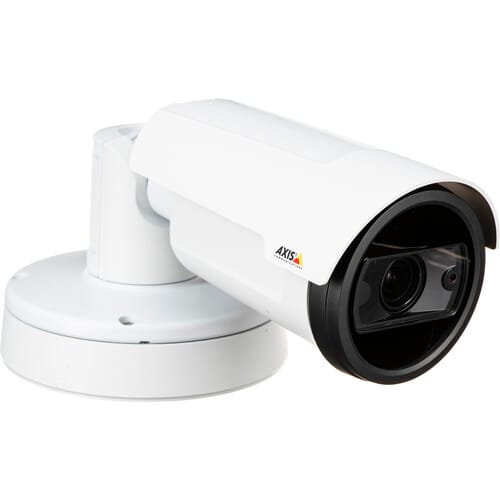When you’re investing in security camera systems to protect your people and property, placement matters—not just for coverage, but also for compliance.
At BTI Communications Group, we design and install commercial video surveillance solutions for performance and reliability for regulated and non-regulated commercial industries. One of the most overlooked elements of a successful commercial video surveillance security deployment is compliance with the laws that govern where and how you can record.
Whether you’re in manufacturing, healthcare, logistics, education, or retail, it’s essential to strike the right balance between safety, privacy, and legal compliance. This guide will walk you through what you need to know about the laws on security cameras and what to keep in mind before the cameras go up.
Is It Legal to Install Security Cameras?
Yes, but with restrictions. Across the United States, business owners are generally permitted to install video surveillance cameras, especially in areas that serve a legitimate security purpose, such as:
- Entrances and exits
- Parking lots
- Warehouses
- Common areas
- Exterior property lines
Areas Where Security Cameras Are Not Permitted
However, the law does not permit surveillance in areas where individuals have a reasonable expectation of privacy, including:
- Restrooms
- Locker rooms (with exceptions)
- Changing areas
- Certain employee break rooms (depending on state law)
This is where laws on security cameras get tricky, and where an experienced partner like BTI comes in. Although we are not lawyers, we will do our best to ensure you comply with any laws regarding security cameras without sacrificing the safety or security features of your systems.
Laws on Security Cameras: Federal vs. State Law
At the federal level, video surveillance is permitted in public or workplace areas—as long as audio recording is not done without proper consent. Audio surveillance is governed by the Wiretap Act and the Electronic Communications Privacy Act (ECPA).
But each state adds its own rules. Some states require:
- Posting visible signage where cameras are active
- Written employee consent for workplace surveillance
- Two-party audio consent, meaning all participants must agree to be recorded
For example, California, Illinois, and Florida all enforce two-party consent laws for audio, meaning both parties must agree to be recorded.
BTI operates in California, Illinois, and Arizona, and our teams are aware of each state’s specific privacy and compliance requirements.
Security Camera Placement Tips: Do’s and Don’ts
A poorly placed camera isn’t just ineffective—it can open your business to legal action.
Here are best practices BTI recommends for every installation:
| ✅ DO THIS | ❌ DON’T DO THIS |
|---|---|
| Install cameras at building entry points | Place cameras inside bathrooms or locker rooms |
| Use signage to alert employees & visitors | Record audio without proper consent |
| Monitor cash handling areas | Point cameras at public sidewalks with zoom |
| Use wide-angle views in open spaces | Monitor employees covertly without notice |
BTI’s team walks your facility during the planning phase to ensure coverage is optimized and legal compliance is addressed—before any equipment is installed.
Depending on your particular concerns, we may have other solutions to problems that otherwise would be non-compliant with video or audio recording. As an example, it is OK to record and track who’s going into and out of a bathroom from outside. You can also have sensors in the bathroom for smoking, vaping, occupancy, and particular behavior in the bathroom. The combination of alerts on sensors and tracking in and out, dwell time, and traffic may be just what you need if your goal is to keep drugs out of the workplace.
What Happens If You Don’t Comply?
The consequences of not complying with security camera placement laws can be significant:
- Fines and penalties for violating wiretapping or privacy laws
- Civil lawsuits from employees or customers
- Reputational damage that erodes trust
- Forced removal of your entire surveillance system
We’ve seen businesses pay more to fix non-compliant systems than they would have spent getting it right the first time.
Why Work with BTI for Your Security Camera Deployment?
BTI Communications Group isn’t just a hardware vendor—we’re a compliance-first security integrator with over 35 years of experience designing systems that perform and protect.
When you partner with BTI, you get:
- Systems built around your legal and operational risk
- Integration with access control, alarms, and IT networks
- Trusted platforms like Axis Communications and Milestone VMS
- Fixed-bid pricing with itemized transparency—no surprises
- Remote monitoring and proactive GlobalView support
At BTI, we’re not just here to sell cameras. We’re here to make sure your investment protects your business—without exposing you to risk.”
Need Help Complying with Security Camera Placement Laws?
Let’s take the guesswork—and the liability—out of your security strategy.
BTI offers free security assessments that include:
- A compliance-focused site walk
- Optimized camera layout
- Transparent, budget-aligned recommendations
Installing surveillance cameras is a smart move—but only when done with compliance, clarity, and strategy. With BTI Communications Group, you’ll get it right the first time—every time.
Stay Compliant and Secure with BTI’s Video Surveillance Solutions
From camera placement to compliance strategy, BTI helps you design security systems that protect your business without crossing legal lines. Our experts ensure your video surveillance meets all federal and state privacy laws—so you can focus on safety, not liability.







